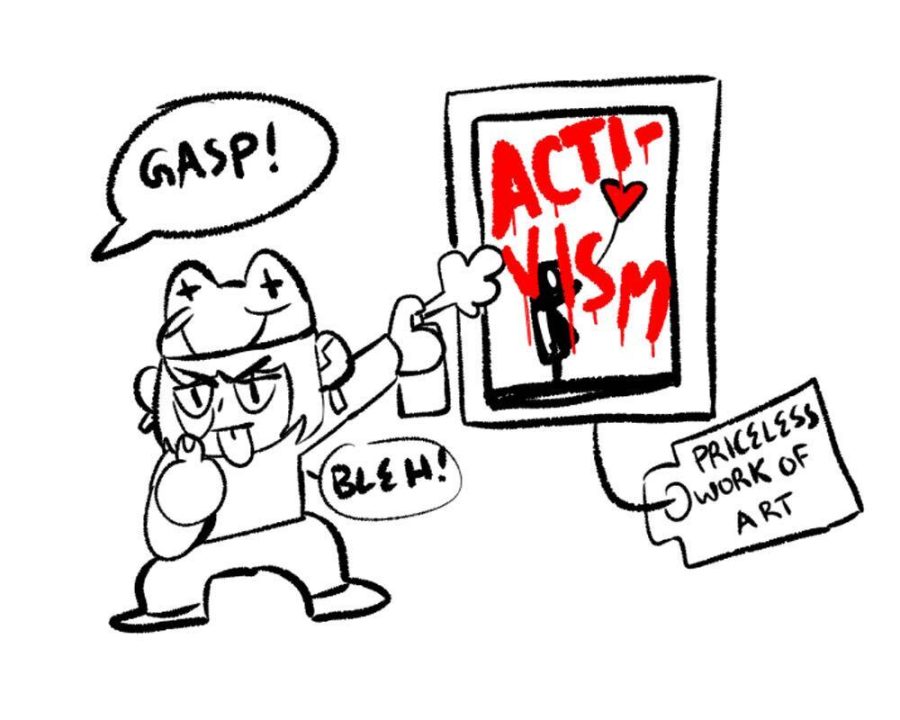Editorial | Activism should help a cause, not just a grab for headlines
October 16, 2022
Donald Trump’s worst nightmare came true for one of the world’s most infamous paintings last week.
Two climate activists from the group Just Stop Oil attempted to damage Vincent van Gogh’s “Sunflowers” with a can of Heinz tomato soup Friday at London’s National Gallery. The activists then proceeded to glue their hands to the gallery wall before being escorted out by police.
The incident follows some notable acts of protest using famous paintings this year. ABC News reported that, in July, members of Just Stop Oil glued their hands to a framed copy of Leonardo da Vinci’s “The Last Supper” at London’s Royal Academy of Art and to the frame of a J.M.W. Turner painting at Manchester Art Gallery. Environmental activists also glued their hands over the summer to the glass protecting Sandro Botecelli’s “La Primavera,” located in the Uffizi Gallery in Florence, Italy.
Activists say that Just Stop Oil’s goal is to persuade the government to end all exploration, development and production of fossil fuels in the United Kingdom. But what’s the connection between vandalized art and the fossil fuel industry’s contribution to climate change?
Activism should sway the public to agree with and champion for your cause. The Pitt News editorial board cares deeply about climate change, but we don’t see how these acts of vandalism will change the government’s attitudes on the topic. Instead, these climate groups should advocate for government-initiated climate action at government buildings or functions — especially since 100 companies are responsible for 71% of emissions. Attacking a beloved painting and impeding people’s enjoyment of art seems performative.
That’s not to say these brazen acts of protest are new. For example, in the 1990s and early 2000s, People for the Ethical Treatment of Animals activists invaded runway shows and threw red paint — meant to symbolize animal blood — on models. Although The Pitt News editorial board does not agree with PETA’s methods, the group’s abrasive campaigning prompted some high-end and fast fashion brands’ fur-free commitments.
One of the Just Stop Oil activists shouted on Friday, “What is worth more: art or life? Is it worth more than food? Worth more than justice?” then adding, “Are you more concerned about the protection of a painting, or the protection of our planet and people?”
While most people probably agree with the message that someone’s life is more important than a piece of art, Van Gogh had a lifelong relationship with nature, fostered in his hometown of Zundert, Netherlands. During his stay in the Saint-Paul asylum, Van Gogh, like many others, found solace and peace in nature. It’s unsurprising then that much of his art depicted natural subjects — ironically including the piece vandalized by the activists.
Performative acts of so-called “protest” make a mockery of a cause, especially when the general public is inconvenienced instead of the people mainly responsible for the problem. These garish protests may signify a dangerous shift in activism, one where people replace good-willed actions that directly contribute to a cause’s mission with something flashy that attracts headlines. We need climate action, but glue and tomato soup won’t get us there.



